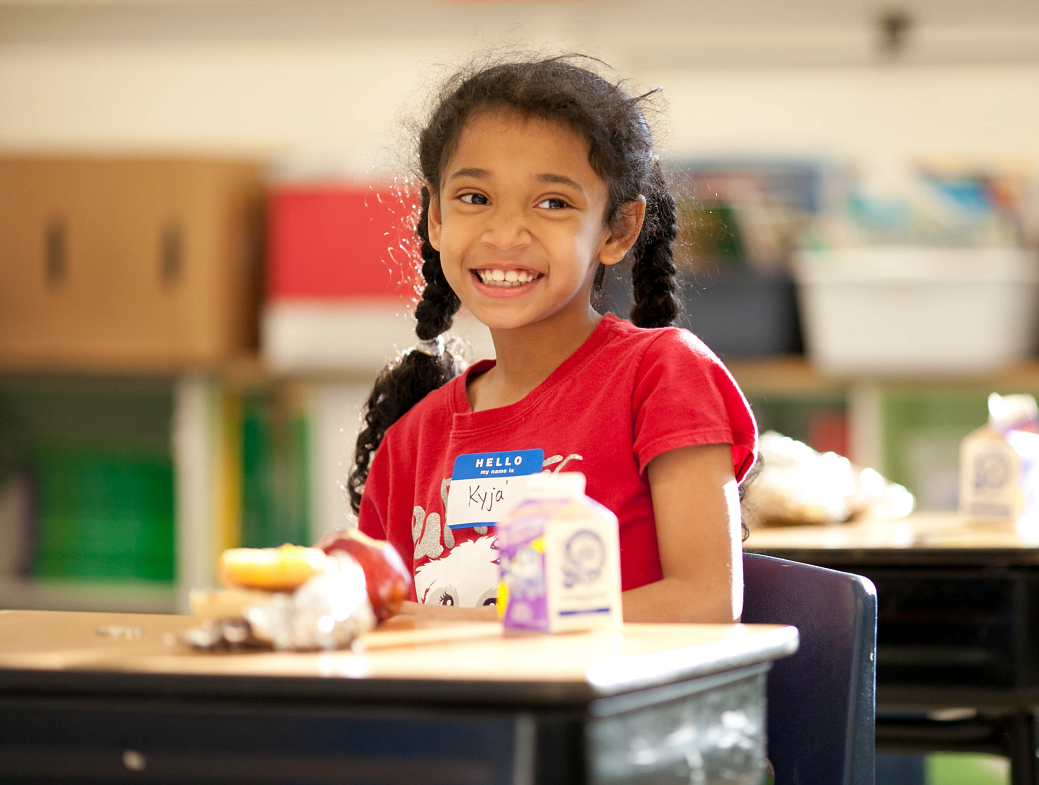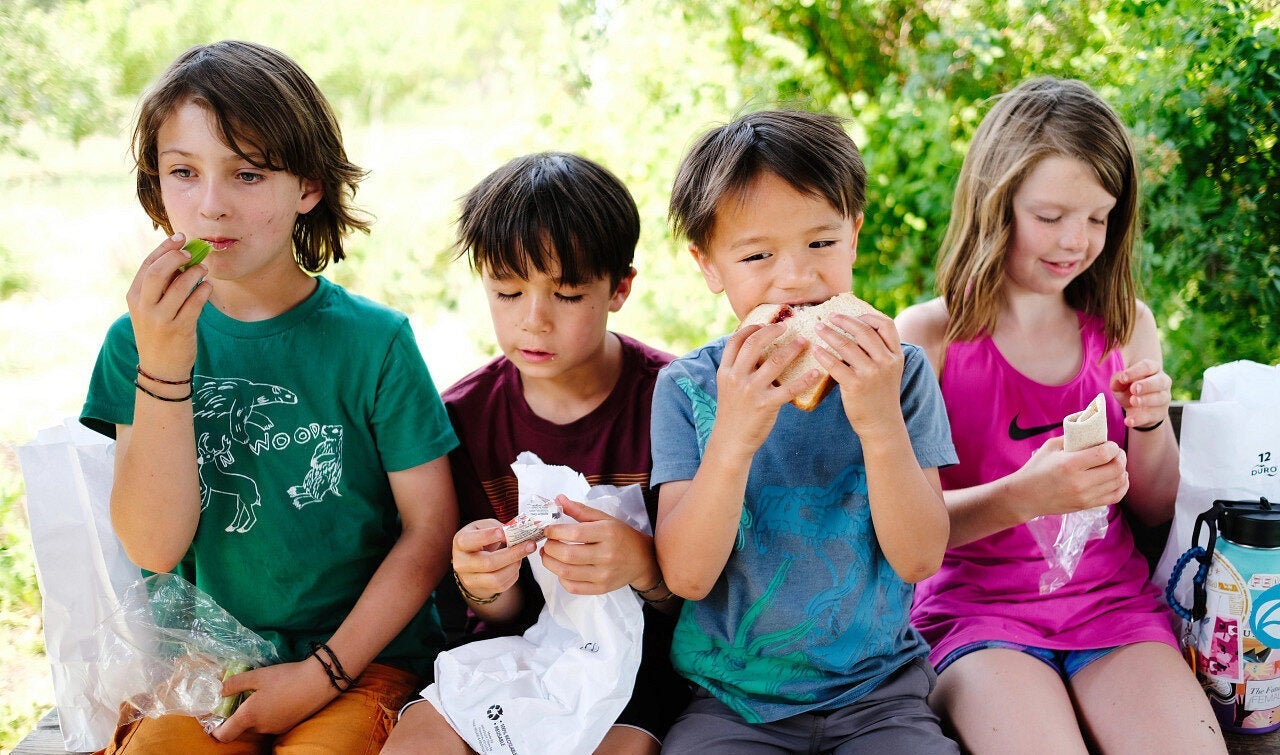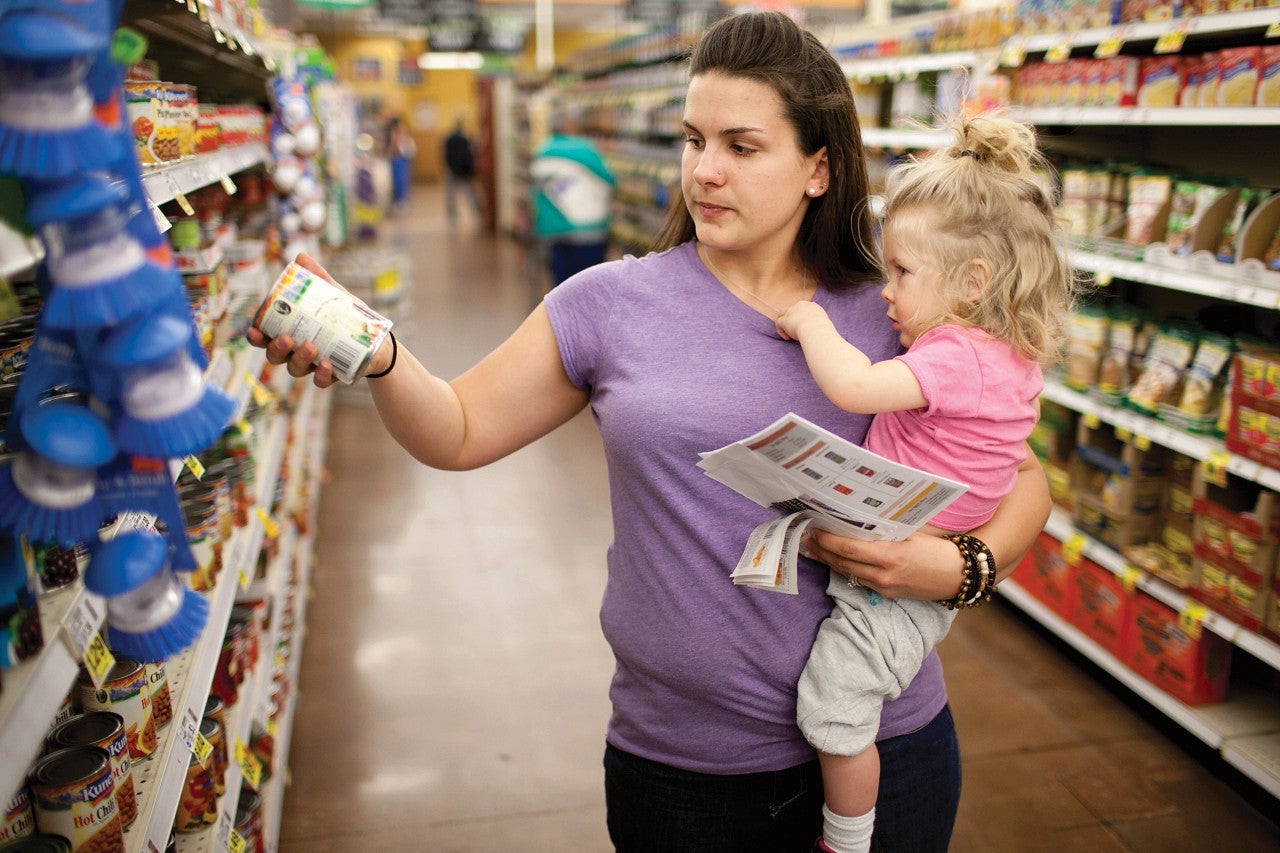School Meals
Schools are at the center of our communities and our kids’ lives. That’s why school meal programs are at the heart of No Kid Hungry’s work.
Schools are at the center of our communities and our kids’ lives. That’s why school meal programs are at the heart of No Kid Hungry’s work.
Every day, students in Louisiana start their school day on an empty stomach. It’s hard for them to focus and learn, which is why it’s critical for them to start their day off right with a healthy breakfast. The School Breakfast Program, created in 1975 is a federally-funded program operated by school districts across the country to facilitate making a balanced breakfast more accessible for all students.
Participation by traditional school breakfast can be hindered by many factors, including:

We know that students who participate in school breakfast achieve higher test scores and attend school more regularly. That’s why we work to increase participation as a part of our strategy to end childhood hunger by incorporating Breakfast After the Bell. We provide schools with necessary technical expertise and grants, working with them on ways to increase the number of kids by incorporating breakfast as a part of the school day.
Learn more about breakfast after the bell models like Breakfast in the Classroom, Grab and Go and Second Chance Breakfast.
School lunch offers students a healthy, balanced meal that they can rely upon during the school day. The National School Lunch Program is the nation’s second largest food and nutrition assistance program and feeds more than 30 million children each day. Healthy school lunches boost academic performance and closes the opportunity gap for children across the country.
At No Kid Hungry Louisiana, we know that one of the best ways to ensure that students who rely on school meals have access to them is by offering them at no cost.
There are several funding options for expanding no cost school meals. To learn more about those options, we encourage you to visit the links below:
Summer is a time for connection, exploration, and fun! Summer meal programs make sure children and young people have the nutrition they need to do just that. During the school year, meals are available to kids through school breakfast and lunch. But kids lose critical access to meals during the summer when schools are out. To fill this gap, many local schools and community organizations across Louisiana operate summer meal programs to provide food to kids at no cost. Summer meal programs are operated locally, overseen by the Louisiana Department of Education and administered and funded by the US Department of Agriculture.

Summer meals aren’t reaching all the kids who experience food insecurity. Without reliable sources of healthy food throughout the summer, kids who live in families experiencing financial hardship are at greater risk of returning to school further behind academically, which can have exponential ramifications year after year.
The Supplemental Nutrition Assistance Program (SNAP) is the largest federal nutrition program in the United States, feeding roughly 40 million people each year. It is also the largest child anti-hunger program, with nearly half of SNAP recipients being children and two-thirds of SNAP benefits going to households with children. SNAP provides monthly benefits to help support family’s food budgets to ensure they are receiving adequate nutrition.
When kids are enrolled in SNAP, they get the food they need to succeed both at home and at school, but many eligible families may not know they qualify or how to sign up. Any household (defined as a family, an individual, or any combination) that purchases food and prepares meals together may qualify for assistance depending on combined income.
Citizens of the United States or non-citizens who are legally residing in the U.S. are eligible to apply for benefits. Non-citizen parents may be able to receive benefits for their children if they are citizens as well. To learn more about benefits and eligibility, we encourage you to visit the Louisiana Department of Children & Family Services website.
It’s important to note that public charge rules DO NOT apply to programs like SNAP, Pandemic EBT, WIC, and school meal programs. Participating in one or more of these programs will not affect an individual’s immigration status or chances of receiving legal permanent residency in the future.
Raising awareness about SNAP and providing needed support during the application process is crucial in ensuring families and children have adequate resources needed to thrive.
By addressing common barriers to SNAP access through outreach and assistance, we’re ensuring more people who already qualify have the information they need to apply and receive benefits.
One way to do this is by supporting SNAP outreach through schools.

School districts can play an important role in supporting access to SNAP as a trusted information source for students, parents and caregivers. An added benefit is that increasing SNAP access supports the whole school community and helps schools!
Increasing SNAP access for eligible families helps to:
For more information on SNAP and how you can support, please visit our Resources page!